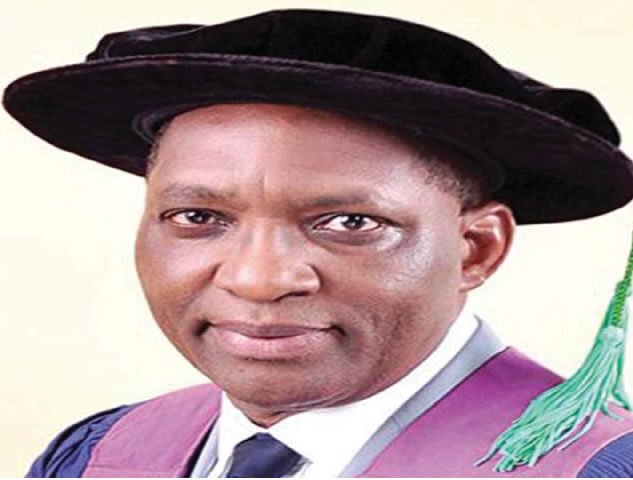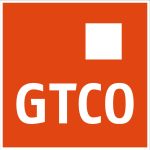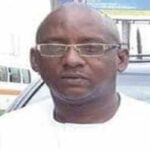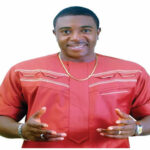
The Vice-Chancellor, University of Medical Sciences, Ondo, Ondo State, Prof Adesegun Fatusi, speaks to PETER DADA about the cost of medical training, medical tourism and related issues
You have been in office as Vice-Chancellor of UNIMED for about two years now. How has the experience been?
I will say it has been excitingly challenging. Anyone who leads a public university in Nigeria will tell you it’s a challenging job. To lead a public university that is young is more challenging; to lead a public university that is young and specialised in medical training, nobody has experienced that before; no pattern to follow and that is probably triply challenging. However, it’s been exciting – exciting because we have been paving the way for a new generation of health professionals; because we are doing things that have not been done before in the Nigeria university system.
For example, as of today, there is no university in Nigeria that has a (full-fledged) faculty of medical rehabilitation. Meanwhile, in the field of medicine, medical rehabilitation is one of the fields in greatest demand now and in the future. It is a field that involves a number of courses; we have physiotherapy, operational therapy, audiology and others. But no Nigerian university has more than two of these courses. Meanwhile we know the rate of road accidents in Nigeria. People who are involved in accidents, who have amputation, many of them are walking on crutches. We can give them prosthetics but a prosthetic in Nigeria will cost over N2m because we don’t even train people in that area. A lot of people, as they are getting to certain old age, they are having hypertension or stroke and some of them have issues with their speech. But there is no university in Nigeria, teaching speech therapy. We think about the issue of audiology because as people are getting old, hearing becomes a problem but there is no university in Nigeria training audiologist for the past 70 years that university education has started in Nigeria. For me, that is scandalous. So, we are trying to close that gap by starting a faculty of medical rehabilitation. Three of the courses have been approved, two have not been approved. We have a faculty already that is embracing those five courses. In fact, we have graduated our first set of physiotherapists. The NUC (National Universities Commission) didn’t even have a benchmark for what must be put in place to start those courses; that did not even exist until we came on board. As of today, the NUC has almost finalised the curriculum. We have laboratories, equipment and lecturers ready. Also, we started a full-fledged school of public health with five departments, four centres and one institute. We also have one of the leading centres for molecular biosciences – for all these genetic testing for COVID-19, Lassa fever and others. We have one of the topmost laboratories. We are doing a lot of work on the issue of herbal drugs. We have 26 courses. Anything related to the health care profession, we have it, except pharmacy and very soon our faculty of pharmacy would soon kick off.
What has been your experience in terms of funding?
No government can fund tertiary education alone. Parents pay fees but the truth is that what they pay can’t be compared to what it takes to run a university of medical sciences. In fact, what the parents are paying is less than 50 per cent of the funds to truly train a specialist in that area. So, in Nigeria people talk about education but don’t do anything about education. In other climes, you will see individuals and groups supporting education. Nigerians would rather spend their money on parties than support education. A Nigerian would donate N20,000 to a school but spend N2m on their child’s graduation ceremony. The Nigerian society has not truly prioritised education. The rich Nigerians don’t support universities. I believe that if we take education as important as we should, we won’t be talking of challenges of finance. In the olden days, communities supported education, gave scholarship to support their children to go to university. So, our greatest challenge is the funding.
Another problem that is related is that most of the teaching materials are not produced in the country. Sometimes even when you have the funds, it takes time to get the materials because they have to be imported. That was our experience at the height of the COVID-19 pandemic. And whenever the exchange rate goes up, it takes more money to purchase and import these materials and equipment. In the face of these, the population of our students is still small because we are still young.
What do you think about medical tourism by the Nigerian elite?
Medical tourism has become a matter of serious concern, because it has a whole lot of repercussions, including capital flight. Interestingly, many of the people who go abroad for treatment, when they get there the people they meet are Nigerian doctors. I was in a meeting and someone said he had a health problem and had to go to the UK for an operation; he said when he got there, he found out that the person to operate him was a Nigerian doctor. So the issue is that Nigerian doctors are well-trained, Nigerian nurses are well-trained, just like other health workers. So it is not about training. If the problem is about training, how come foreign countries are looking for them? If Nigerian doctors are not well trained, no country will call them. The problem is about Nigerian leaders, who are not showing enough confidence in the system. Though everybody has a right to health care anywhere they choose, leadership also imposes certain responsibility to model what you want the people to practise. So, I think one of the ways to reverse that trend is for Nigerian leaders themselves to reform Nigeria hospitals and invest in the system. One of the lessons COVID-19 has taught us is that people will not always be able to run out of the country to seek medical care. At the height of COVID-19, nobody could travel, everywhere was locked down. That is why I believe we need to invest in the Nigerian health care system, so that apart from tourism, we can deliver quality health care to all Nigerians, irrespective of social status and economic background.
Also, there is a commercial side to medical tourism. Many of the things Nigerians are getting in India can be got in Nigeria. The Indian doctors do call us from there if we refer patients to them; they do call my number. So, people that are going out have economic motive for going out; it is not all about medical all the time.
Is it not possible for successful Nigerian doctors to pool resources together and build first-class hospitals in Nigeria to discourage medical tourism abroad?
If you follow the news in the last couple of months, you will notice that a lot is happening. There was one (hospital)
that was opened in Ikeja (Lagos State) recently. The African Centre of Medical Excellence too has been opened. A lot of Nigerian doctors are doing that, but it requires finance. What will make it possible for some of them to do that is if we have financial institutions like the Bank of Industry that can give out special loans for such a project. If it would happen, there must be a financial structure to support those doctors coming together to enable them to carry it out.
UNIMED recently announced an increment in tuition and that caused some uproar. How did you manage that?
It is true that the school increased fees to an extent and the reason for that was the economic situation of the country and what it takes to run a university of medical sciences. I need to also clarify that for our students who are already in, the school fees increase by 10 to 15 per cent. As a result of the inflation rate, we need put a strategy in place to ensure that we are in a position where we can provide top quality training for students and I think our efforts and focus on top quality is reflecting in our recent rating by the NUC. According to the rating, we are the fourth best ranked state university and 19th in Nigeria despite the fact that we are only seven years old.
So, one of the things that we need to understand is that when you think about university of medical sciences, the needs, the economic dynamics are not the same as that of the conventional universities. Before the University Of Medical Sciences, Ondo was established, nobody had seen a university of medical sciences in Nigeria; so they don’t fully understand what is involved.
Let me tell you the differences: A lot of the courses in the university of medical sciences are professional courses. Also the NUC specify what we call students-teachers ratio. The students-teachers ratio is higher for medical courses. So, it means that in the conventional universities we can have large number of students with few teachers but it is not so in the university of medical sciences. Secondly, when we talk of classes, in conventional universities we have some programmes like philosophy, Yoruba, sociology and others, some of the courses may need equipment, some may not need, but for medical universities, we need equipment for almost all the courses. So, there is nowhere to balance it.
Thirdly, in a normal conventional university, we have some classes that are small, some very large but in medical university, the class are very small because they are regulated, not just by the NUC but also by professional councils. For instance, dentistry, the OAU (Obafemi Awolowo University, Ile Ife) is celebrating its 50th anniversary of medical school, it is permitted to train only 25 dentists a year. The University of Medical Sciences, here in Ondo, we have spent over N300m buying equipment for dentistry, we are only approved to train 10 students a year. We are approved to train 50 doctors a year. So we are talking of very small classes that need high level of equipment. So the cost for a medical university is far above. Why the difference? When you run a course in the university, you get accreditation from the NUC and you are good to go, that is not so in the medical university, because you are regulated by the NUC, you are also regulated by the professional council and you pay twice for every course that is accredited and each of those accreditations costs millions of naira. To upgrade our medical laboratory we spent over N30m and in another couple of years, we need to bring the assessors back. In the conventional universities, may be only 90 to 95 per cent of their courses would need the NUC but for us, we need the NUC for almost all our courses. Again, medical teachers are paid more money than any other teacher. If you are a doctor or teacher in a medical school, you are also a consultant in the hospital. You will get your salary in the university and you will also get paid as a consultant. But by the agreement of this country, if you are a medical teacher and you don’t get appointment of the hospital as a lecturer, you must be paid extra money by the university to balance that. So an average teacher here, who is not a consultant, would get not only his regular salary but also a percentage above it. When you put all that together, you are talking about a huge amount of money. Lastly, every equipment in the medical school is imported and is dollar denominated and we all know what the cost of dollar to naira is now. So when you add all these factors together, and people start comparing medical university with conventional university, it shows some level of ignorance. But I can understand the people, because they have not seen a university of medical sciences before, it just a new development. The government, the parents and other stakeholders must be supportive. That is why the overall cost has increased significantly.
What preliminary arrangement did the school make before announcing the new fees?
We know the economy is not friendly and we sincerely sympathise with the parents. However, we cannot compromise the quality of training of health professionals just because the economy is hard. There are some complaints; that is natural but what we did was to call a meeting of parents’ forum before the increase. A number of parents attended in person while some attended online. There was an opportunity for every parent to be part of the meeting. We explained the necessity to look at the price of current training vis-a-vis the demands. When we had a number of reactions from parents, we called another meeting where we had a number of parents, we had students’ representatives, we had the representative of the Osemawe (Ondo monarch), representative of the Ministry of Economic Planning, state Ministry of Finance and the media, where we explained again to them. The only school we can compare to UNIMED is King David Medical University in Eboyin State, which is the only other state-owned specialised medical university in Nigeria. Their fees compared to ours are double if not triple. At the end of the day it was agreed that we should set up a tripartite committee, consisting of representatives of the management, students’ union and the representative of the parents and the committee came back with recommendations about the prices and the management accepted all their recommendations. So, the school fees you see today on our website reflect a joint thinking of the parents, students and the university management.
Did the increased tuition affect enrollment of new students?
Let me say this, this university, we place a premium on transparency and openness. Even though we know things are tough, we tried not to increase significantly for those who are in. We wanted the people to know ahead so that they could make a choice. There are universities around us that are charging more than double of what we charge. So, to answer your question, the increment didn’t affect our enrollment. As I am talking to you all our medical spaces have been filled up; yet people are on our neck, begging us for space but there are no more spaces in certain areas. That tells you that the spaces are well subscribed. That also shows that people have confidence in our ability to produce quality graduates.
What has the relationship between the community and the university been like?
The Ondo Community has been wonderful to us in many ways, even though the community can do more. The monarch is one of our greatest supporters. People in the Osemawe-in-Council are people we can call at anytime. We have a lot of positive support. However, we have so many Ondo people all over the world who are extremely successful; our prayer is that they would come to support us. Because they alone can transform this university. Ondo people have been supportive but they can do much more, particularly those who are not based in Ondo town.
Is your university doing anything in the area of herbal medicine?
One of the things we are proud of is that we have a centre for herbal medicine and drug development and our agenda is to study our own drugs because we have a lot of powerful herbal drugs but we have not studied them scientifically and that is why our agbo (local concoction) doesn’t have dosages. So, at our herbal centre, we are developing our herbal farm to scientifically test these drugs so that we can turn them from just herbs to tablets and capsules. For us, it is something we believe must be done.
How much progress have you made in this regard and how soon can we expect a product from the university?
When it comes to issue of science, it may take a while. We have started the journey, maybe by this time next year the products will be out, but we have started.
Some people claimed to have cured COVID-19 with herbal drinks. How believable is that claim?
Those that said they took herbs to cure COVID-19, where is the evidence? Science has protocols. Don’t forget that COVID-19 is a virus and most viruses are self-limiting. In most cases, what kills people is not COVID-19 itself but the complications that came along with it. The fact that I used agbo (local concoction) and I got well does not mean it was the agbo that did the cure. The body itself has protective mechanisms, in terms of immunity. What I am saying is that we have not established the scientific premise to say that agbo cures COVID-19. There is no scientific documentation that could enable us to show it to the world. When they talk about new drugs being produced to cure the virus, it usually involves experimentation. For instance, 10 people with COVID-19 may be assembled and the drug administered to them and they are watched over a period to see the number that die and those that survive. Then we begin to compare and analyse. That is how science works. Science has a methodology and protocols and that is what we need to do for COVID-19. Whatever cure people talk about must be subjected to a scientific process or procedure. It is after then that we can be sure of the result or outcome. Somebody cannot just prepare agbo and say it cures COVID-19. It doesn’t work that way.
Copyright PUNCH.
All rights reserved. This material, and other digital content on this website, may not be reproduced, published, broadcast, rewritten or redistributed in whole or in part without prior express written permission from PUNCH.
Contact: [email protected]













